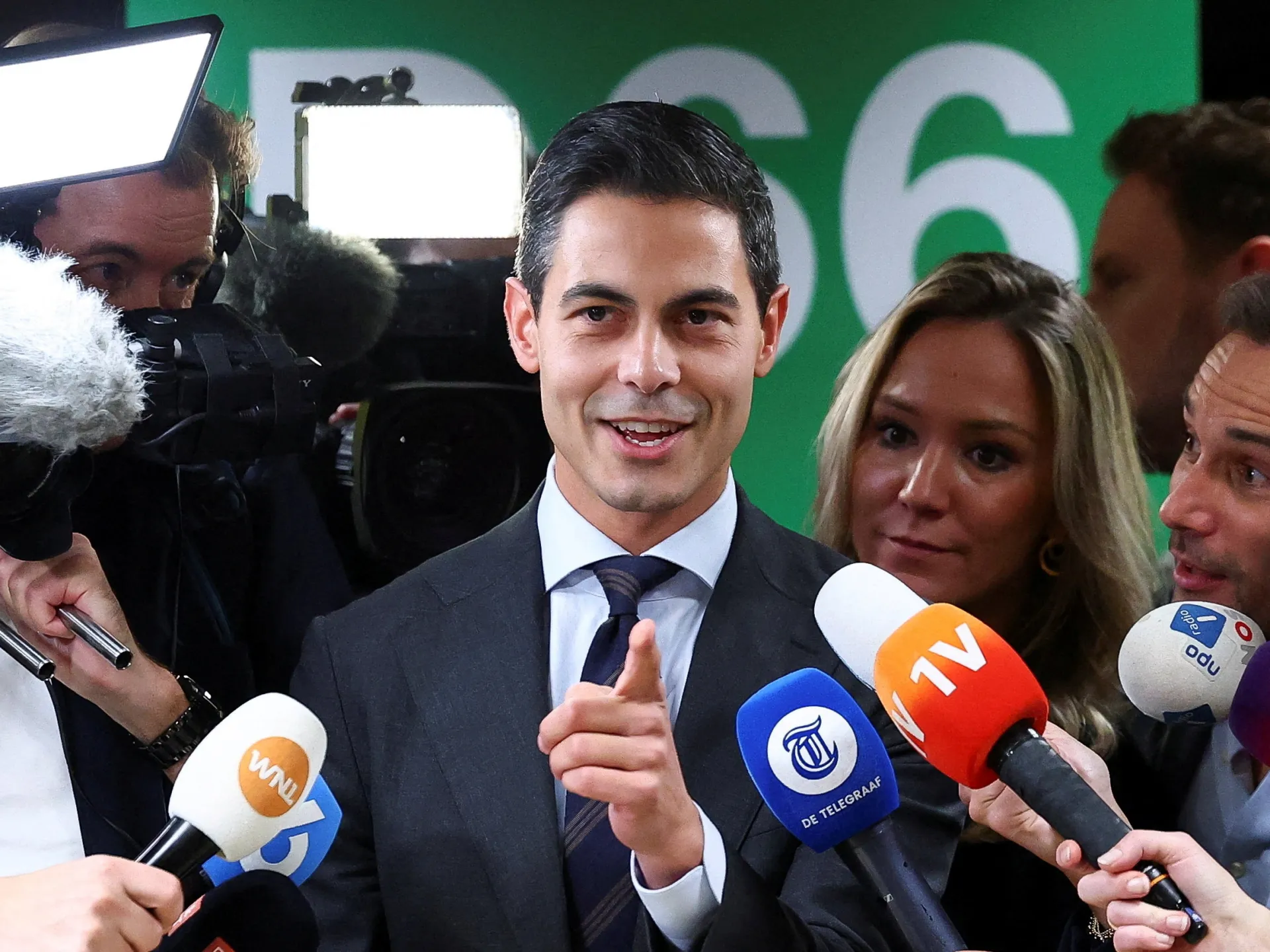Dutch centrist Jetten claims victory in vote where far right lost ground | Elections News
D66 party says no time to waste as begins challenge of finding three coalition partners on fractious centre-ground.
Published On 31 Oct 2025
Dutch centrist leader Rob Jetten has claimed victory in a cliffhanger election dominated by immigration and housing after seeing off far-right contender Geert Wilders, saying his win proved populism can be beaten.
The 38-year-old head of the D66 party, which won the most votes in this week’s general election, is now set to become the youngest and first openly gay prime minister of the European Union’s fifth-largest economy.
Recommended Stories
list of 3 itemsend of list
“I think we’ve now shown to the rest of Europe and the world that it is possible to beat the populist movements if you campaign with a positive message for your country,” he said on Friday, as tallying from news agency ANP showed he was on course to win.
The pro-EU, liberal D66 tripled its seat count with an upbeat campaign and a surge in advertising spending, while Wilders and his PVV Freedom Party lost a large part of the support that had propelled him to a shock victory at the previous poll in 2023.
D66, which currently has 26 seats but could gain one more when every vote is counted, is now expected to lead talks to form a coalition government, a process that usually takes months.
The party will need to find at least three coalition partners to reach a simple majority in the 150-seat lower chamber of parliament, with the centre-right CDA (18 seats), the liberal VVD (22) and the left-wing Green/Labour group (20) viewed as contenders.
But there are questions about whether the VVD and Green/Labour will work together. VVD leader Dilan Yesilgoz said before the election an alliance with Green/Labour “would not work” and she wanted a centre-right coalition.
On Monday, the Green/Labour group will elect a new leader after former EU Vice President Frans Timmermans stepped down.
On Friday, Jetten urged mainstream parties from the left to the right to unite. “We want to find a majority that will eagerly work on issues such as the housing market, migration, climate and the economy,” he said.
‘Serious challenges’
Reporting from Amsterdam, Al Jazeera’s Step Vaessen said Jetten faced “serious challenges” as informal coalition talks got under way, given that his party holds a razor-thin lead of only thousands of votes over Wilders and his PVV Freedom Party.
Jetten, an enthusiastic athlete who once ran as a pacemaker to Olympic champion Sifan Hassan, had said there was no time to waste “because the Dutch people are asking us to get to work”.
Wilders said Jetten was jumping the gun, pointing out that the results would only become official once the Electoral Council, rather than ANP – which collects the results from all municipalities in the Netherlands – had decided.
“How arrogant not to wait,” he wrote on X.
Although all mainstream parties had already ruled out working with him, Wilders had said he would demand to have a first crack at forming a coalition if his party was confirmed to have the most votes.
Although he saw support collapse, other far-right parties like the Forum for Democracy (FvD), a nationalist party that wants to withdraw from the EU’s Schengen system of open borders, performed well.
Confirmation of the result will come on Monday, when mail ballots cast by Dutch residents living abroad are counted.
Party leaders will discuss the next steps on Tuesday.

